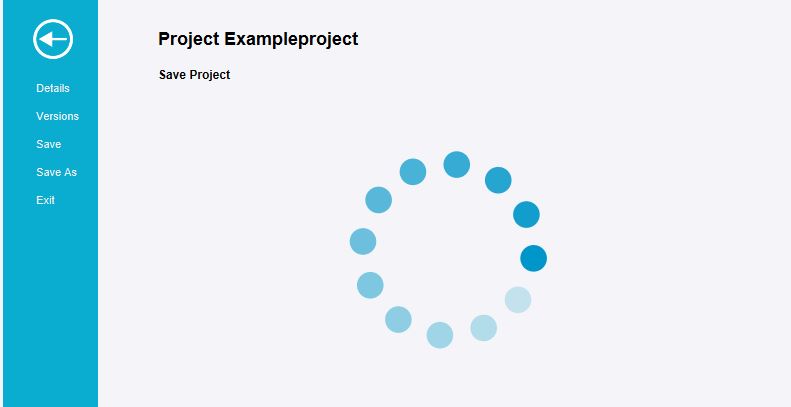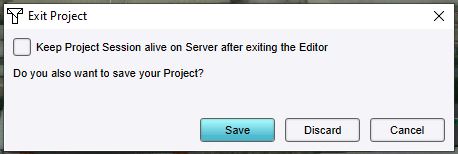File Menu: Difference between revisions
mNo edit summary |
|||
| Line 65: | Line 65: | ||
====Currency==== | ====Currency==== | ||
The current active Currency. The Currency was selected when initially creating the project. | The current active [[Currency]]. The Currency was selected when initially creating the project. | ||
---- | ---- | ||
Revision as of 10:43, 7 September 2020
What is a File Menu
A File menu is a graphical control element common to most file-handling computer programs. It often appears as the first item in the menu bar, and contains commands relating to the handling of files, such as open, save, print, etc. It may also contain a list of recently edited files.
In some operating systems, the file menu also offers commands for closing windows and exiting the current program.
How does the File Menu relate to the Tygron Platform
The File menu opens a properties pane and provides access to detailed project information, who can access this project, enables users to save the project, to save different versions of the project and enables users to exit their project. In the Tygron Platform the file menu is located on the left side of the Ribbon Bar.
Accessing the File Menu

Selecting the "File" Tab from the ribbon header opens the File Menu properties window.
File Menu Overview
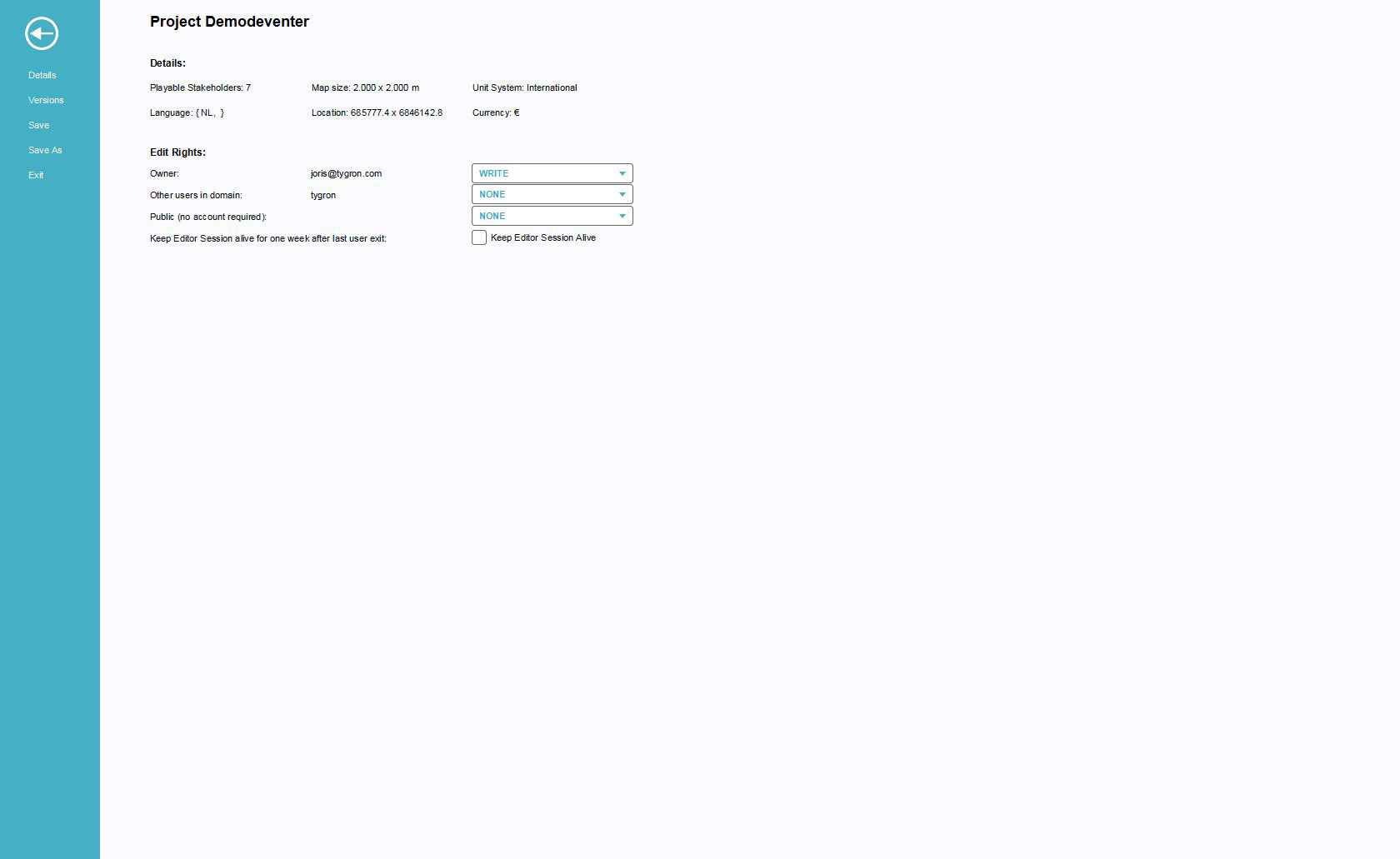
The File Menu provides access to detailed project information and properties of your project. The menu on the left side provides access to: Details, Versions, Save, Save As, Exit.
When opening the File Menu, the "Details" menu item opens.
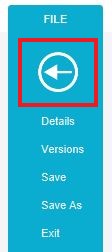 The white arrow on top takes you back to the main view of the editor.
The white arrow on top takes you back to the main view of the editor.
Details Panel
The Details Panel provides access to project specific characteristics and details.
Project Name
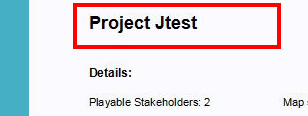
The name of your project is provided in the Details Panel. The project name is provided by the user when initially creating the project.
Details
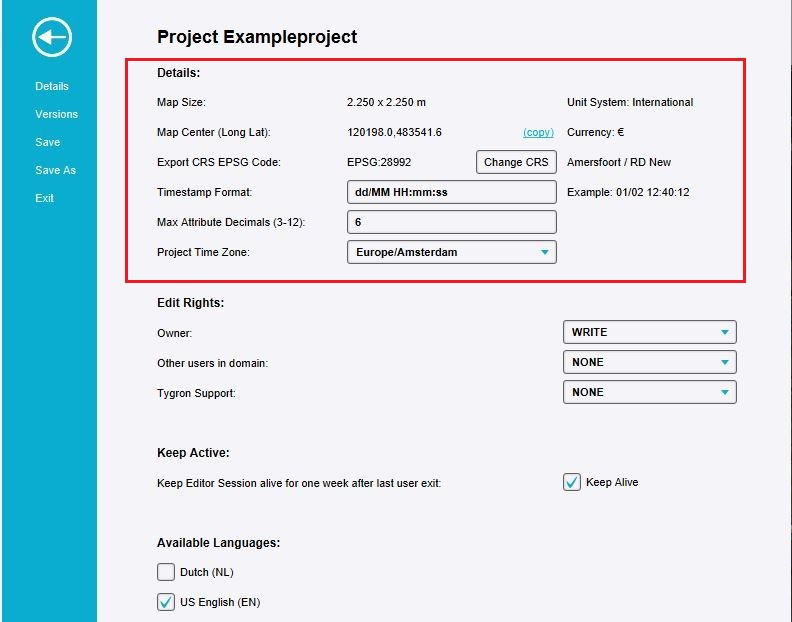
Playable Stakeholders
The number of playable stakeholders for your project.
Language
The language selected for your project, as provided by the user when initially creating the project.
Currently available Languages: EN / NL
Map Size
The current map size of the project. The map size can be displayed in meters or in feet (m or ft). The Map Size was selected when initially creating the project.
Available map sizes range from 250m x 250m to 3.000m x 3.000m
Location
The location of your project, described in X, Y coordinates (What coordinates system is this?).
Unit System
The current active Unit System. The Unit System .. which units are being used to display measurements. The Unit System was selected when initially creating the project.
Available unit systems: Customary (feet), International (metric), British Imperial System
Currency
The current active Currency. The Currency was selected when initially creating the project.
Edit Rights
- See also: Permissions
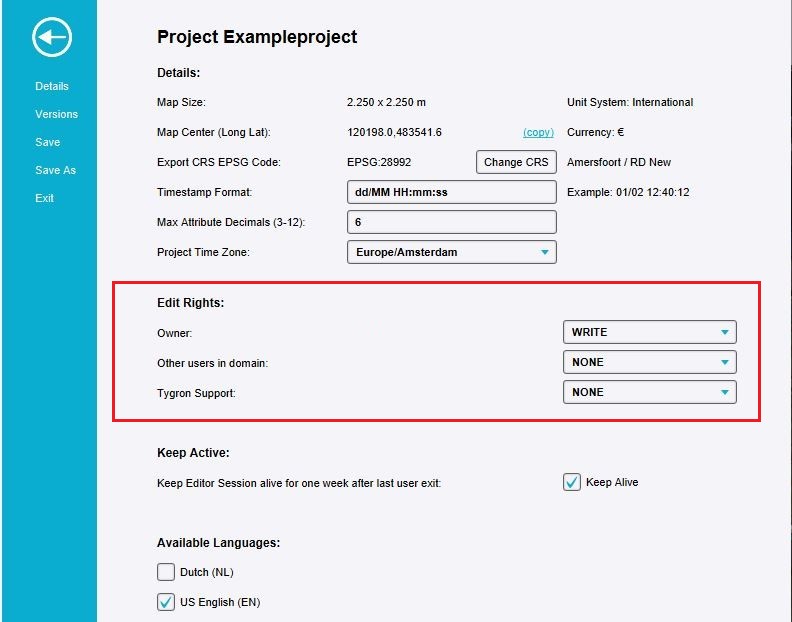
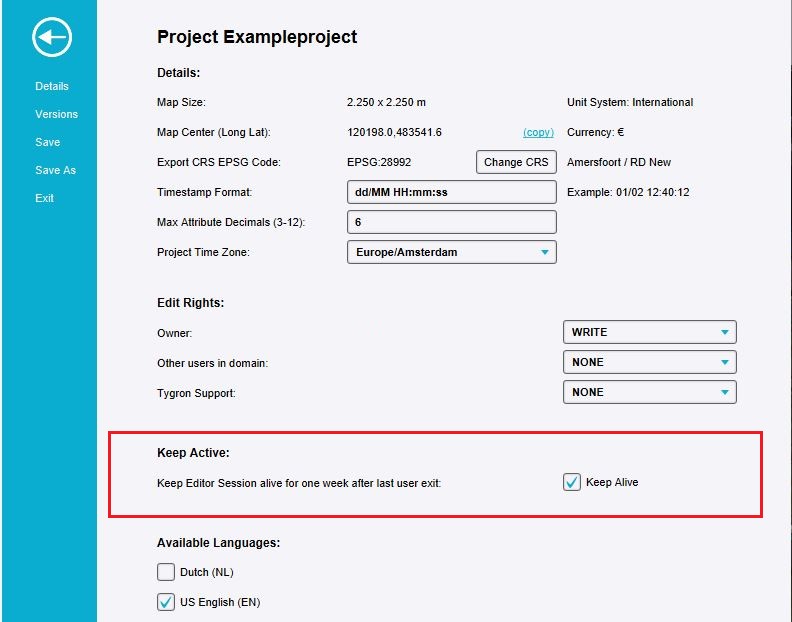
The Edit Rights properties describe which users can access and edit the currently opened project.
Owner
The Owner is the user initially creating the project, often the e-mail address of the user.
The dropdown-listbox next to the user provides access to the parameters "Write" and "Read". This makes it possible to make your project read-only.
Other users in domain
Users are grouped inside a domain, a domain can consist, for example, out of people from the same organisation.
The dropdown-listbox next to the domain provides access to the parameters "None" and "Read" and "Write". This parameter controls if users inside your domain have access to the selected project and if they have read-only access, or can also write (save) the currently selected project.
Tygron Support
This parameter grants Tygron Support access to the project. By default the selected parameter is set to "None", so the project can not be viewed or changed by Tygron Support. If the selected parameter is set to "Read" or "Write", Tygron Support can respectively view and change the project data.
Tygron Support will only ask for access after a support request has been made. This is to better shield any proprietary data that your project may contain.
Keep Editor Session alive for one week after last user exit:
In most cases, an Editor Session is only alive when there are users connected to a session. Sometimes, you want a session to be active, without anyone being connected all the time. This means a user in a different timezone for example can join this active session. You don't have to keep your own computer connected to the session at all times in this way.
Versions
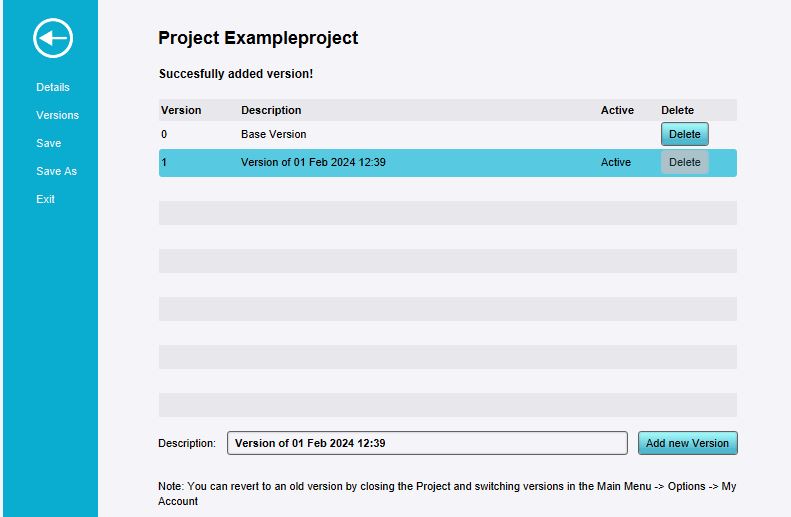
Versions assist users in saving different versions of a certain project, instead of having to save to a different filename everytime.
The table displays a list of Versions available for this project. The table has 3 colums: Version, Text and Active. The "Version" column displays a linear number, the Text column displays the text as input by the user in the "Description" Field. The "Active" Column displays "Active" next to the Version row which is active.
The current project has 3 versions are available: 0 (Base Version), 1 (Version of 12 Aug 2015) and 2 (Version 2). Version 2 is the version which is active, as displayed in the "Active" column.
Switching Versions
You can revert to an old version by closing the Project and switch versions in the Main Menu.
"Main Menu" -> "Options" -> "My Account"
Save
Pressing "Save" saves your project data. A spinner will appear indicating that the project is saving. When succesfully saved the spinner will disappear and the screen will indicate a successful save message.
"Project ... was successfully saved"
- File -> Save
- Spinner appears
- Confirmation message
-
2. Spinner
-
3. Confirmation
Save As
Pressing "Save As" facilitates users in saving the project with a new name.
The same restrictions apply when creating a new project, between 3-15 characters.
Exit
Pressing the exit button exits the Application.
A popup-message is being displayed asking the user if he would like to save his project. Pressing "Yes" saves the project and exits the application, pressing "No" exits the application without saving the project. Pressing Cancel doens't save the project and returns the user to the menu.
